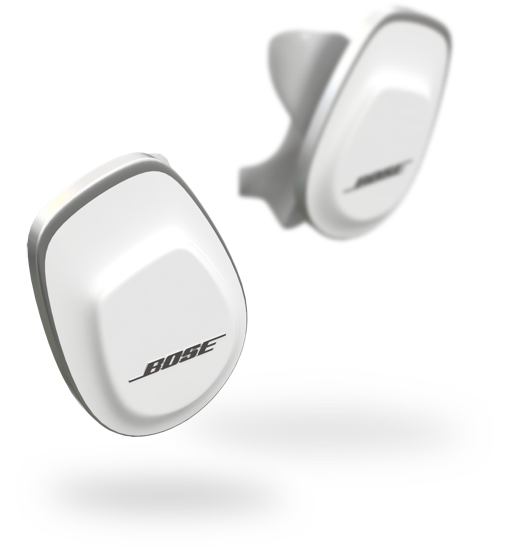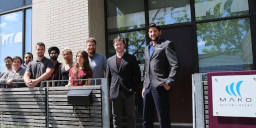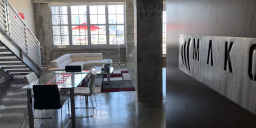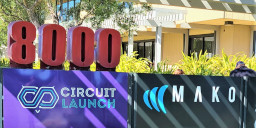With Paul Rowan, Co-Founder of Umbra
Hosted by Kevin Mako, President of MAKO Design + Invent
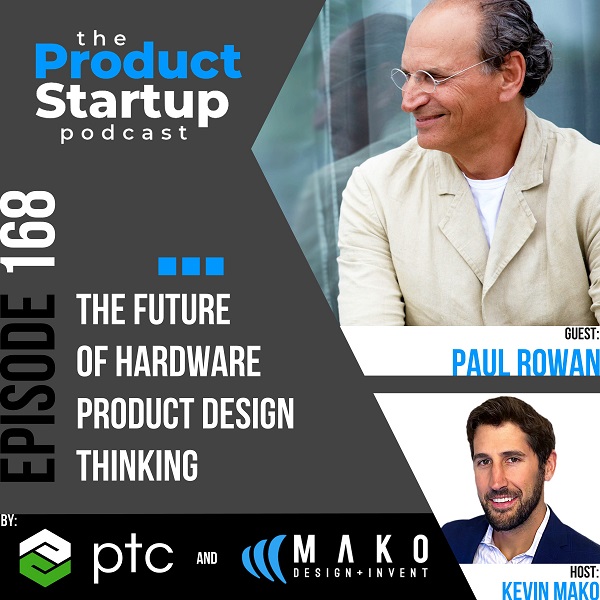
Paul Rowan, the Co-Founder of Umbra, has been at the helm of the company for 37 years, leading the design, manufacturing, and distribution of a wide range of household products to over 70,000 retail stores across 200 countries. Today, Paul is an esteemed design thinking lecturer who will soon share invaluable insights on how inventors, startups, and small manufacturers can understand the importance of quality design in today’s world. His talk will focus on how to use design to achieve global excellence, integrate a human touch into hardware product ventures, and ensure long-term prosperity.
Today you will hear us talk about:
- Ideas for hardware products can be driven by sales, which is an effective sales strategy if you already know the desires of your major buyers.
- The future of work culture in hardware product design is rapidly evolving.
- Hardware designers will have ample opportunities to create products that address work-from-home needs, mental health concerns, collaborative office spaces, and other emerging prospects in the design landscape.
- Artificial Intelligence (AI) is a significant area of interest.
- AI cannot replace human intelligence.
- Rather than a threat, AI is the next tool to be embraced.
- Using tools can exponentially enhance the quality of your hardware startup.
- The humanistic approach versus the robotic approach.
- Purposeful, sustainable, and human-centered design is key to long-term success.
- Incorporating humanistic values can differentiate your company.
- Good design is essential to entering the market.
- Poor design cannot be sold.
- Adding humanistic values beyond excellent design can be beneficial.
- Competing with big corporations is possible by emphasizing humanistic values as a startup.
- Sustainability, carbon footprint, sourcing, and labor practices must be considered.
- Putting your name on a product can be a valuable branding strategy.
- Do not hesitate to put your name behind your brand.
- When making short-term problem-solving decisions, prioritize long-term value, which is now more critical than ever for modern businesses.
- Long-term thinking leads to significantly more success.
- Using design thinking to prototype and test until you get it right is crucial.
- The human element is crucial to the design process.
EPISODE HIGHLIGHTS
- 1:00 – Hardware is now developed iteratively, but there are tools to do it the best way in 2023
- 3:00 – Hardware product development iteration is historically rigid and difficult
- 3:15 – Ideally you want to be nimble and be able to meet customer demand, or other market demands.
- 4:30 – What is iterative design between manufacturing runs?
- 4:40 – Legacy hardware design is through waterfall methodologies. Releases are planned well in advance and thus iterative design and feedback is very rigid.
- 5:00 – Modern hardware development takes from the software playbook
- 5:25 – It is easier than ever, due to manufacturing technology, to get iterative designs back to review and improve. More confidence to iterative and move forward with a new design.
- 5:30 – Quick assemblies, 3D printing, low quantity builds, short run manufacturing
- 6:00 – The pandemic forced people to be agile in development given that many supply chain issues forced legacy processes to upgrade to iterative design logic.
- 6:55 – There is a ton of new technology both in design and manufacturing to be able to iterate your product efficiently.
- 7:05 – Short run production is so valuable to iterative physical product design and development.
- 7:30 – Planning your product lifecycle well in advance is not realistic unless you can pay millions on consultants and data to ensure you’re properly making those predictions so early, and even so, the information will be weaker than iterating in real-time based on real market needs.
- 8:30 – There are many different stakeholders which should weigh into the feedback between each iterating in design: The customer, industrial design, mechanical engineering, electronics engineering, software, manufacturing, product managers, investors, the inventor, employees, etc.
- 8:50 – Make sure you get engineers in front of customers that have bought your prior versions of the product.
- 9:55 – Who are your existing customers and who are your potential customers.
- 10:10 – Feedback can be both problems that need to be solved but also opportunities for new features.
- 10:50 – Make sure you are at least first being sure that you are collecting feedback information.
- 11:00 – After you collect feedback information, how do you organize and prioritize that information, so that you can eventually execute on that information properly.
- 11:30 – A foundation of organization is revision control.
- 14:40 – Collaboration is the next key pillar of iterative design, built on the foundation of revision history.
- 17:00 – How do you then prioritize the collaborated information. Priority labels and importance.
- 19:00 – Even if you’re just a new hardware startup, you can use these processes in a simple spreadsheet to improve the output of your physical product development processes.
EPISODE LINKS
Paul Rowan Links:
LinkedIn | Umbra
The Product Startup Podcast Links:
https://www.ProductStartup.com/
Instagram | LinkedIn | Facebook Page | Facebook Group | Pinterest | Twitter | YouTube
PTC Links:
https://www.ptc.com/
OnShape | Creo
Mako Design Links:
https://www.makodesign.com/
YouTube | Instagram | LinkedIn | Facebook | Pinterest | Twitter
Kevin Mako Links:
Instagram | LinkedIn | Quora | Facebook | Twitter
Partner: PTC’s best-in-class software solutions Onshape: The only cloud-native product development platform that delivers full-featured computer-aided design (CAD), integrated product data management (PDM) and enterprise analytics in a single system, and Creo: 3D CAD solution that provides designers with the most innovative tools to build better products faster, such as generative design, additive manufacturing, real-time simulation, IIoT, and augmented reality.
